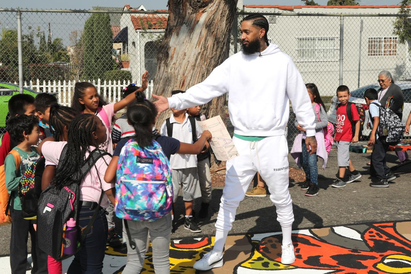At that point it was really reinforced for me, that if I’m not working everyday to provide a strong counter narrative to the dominant one, that my child will not only subconsciously internalize harmful beliefs about himself, but will also live with a conscious fear that his life may be in danger.
This makes me think about all of the ways hidden trauma can be caused by daily messages we receive throughout our lives. In the national dialogue about trauma and trauma informed education, it is imperative we consider adversities such as exposure to racial trauma, hate crimes, intergenerational trauma, organizational oppression and racism, microaggressions, and even bullying and school violence. Looking through the eyes of a child, reveals how these things impact us all. We must also ensure that conversations about trauma informed practices and unconditional education always explicitly address how race and identity factor in.
My son is three now and I am proud to be raising him in a multi-racial and multi-cultural family and community. We talk about race, culture and identity. I am conscious about the media he is exposed to and love that two of his favorite songs right now are positive representations of aspects of his identity: Bepot by Black Eyed Peas and Black Panther by Donny Arcade & 4biddenknolwedge. We read books featuring diverse protagonists and families. Still, I know this is not enough and one of my biggest hopes is that he will go to a school that continues to support the development of a counter narrative about race. It is also one of my biggest hopes that this is exactly what we are all working toward by implementing Unconditional Education in schools through our All-In! Partnerships.
What are the ways you are actively reshaping narratives about race within your own family or within your professional role in education and mental health? Please leave a comment to share!


 RSS Feed
RSS Feed